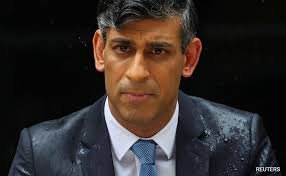British Prime Minister Rishi Sunak’s ambitious plan to implement a generational smoking ban will not be enacted following his decision to call a snap election, leaving insufficient time to advance one of his key policy initiatives into law.
Speaking to reporters on Friday, Sunak expressed his disappointment over the unfulfilled smoking ban: “The smoking ban, of course, disappointed not to be able to get that through at the end of the session given the time available.”
Sunak’s proposed legislation aimed to introduce some of the world’s most stringent anti-smoking measures by prohibiting the sale of cigarettes to anyone currently aged 15 and under, effectively creating a smoke-free generation. However, with the election called for July 4, the bill was omitted from the parliamentary agenda, leading to widespread speculation that it would be abandoned.
In his announcement on Wednesday, Sunak emphasized his government’s achievements, including ensuring a “smoke-free” future for the next generation. However, this claim is significantly undermined by the failure to pass the anti-smoking bill, even if future governments choose to reintroduce similar legislation.
The proposed bill had made initial progress, overcoming its first parliamentary hurdle in April, despite resistance from numerous Conservative party lawmakers. Nonetheless, the accelerated timeline of the “wash-up” period before the election left no room for further advancement of the bill, casting doubt on the feasibility of Sunak’s intended legacy without its implementation.



